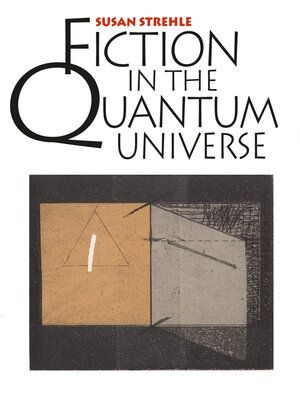
Sign up to save your library
With an OverDrive account, you can save your favorite libraries for at-a-glance information about availability. Find out more about OverDrive accounts.
Find this title in Libby, the library reading app by OverDrive.



Search for a digital library with this title
Title found at these libraries:
| Library Name | Distance |
|---|---|
| Loading... |
In this outstanding book Susan Strehle argues that a new fiction has developed from the influence of modern physics. She calls this new fiction actualism, and within that framework she offers a critical analysis of major novels by Thomas Pynchon, Robert Coover, William Gaddis, John Barth, Margaret Atwood, and Donald Barthelme.
According to Strehle, the actualists balance attention to questions of art with an engaged meditation on the external, actual world. While these actualist novels diverge markedly from realistic practice, Strehle claims that they do so in order to reflect more acutely what we now understand as real. Reality is no longer "realistic"; in the new physical or quantum universe, reality is discontinuous, energetic, relative, statistical, subjectively seen, and uncertainly known — all terms taken from new physics.
Actualist fiction is characterized by incompletions, indeterminacy, and "open" endings unsatisfying to the readerly wish for fulfilled promises and completed patterns. Gravity's Rainbow, for example, ends not with a period but with a dash. Strehle argues that such innovations in narrative reflect on twentieth-century history, politics, science, and discourse.
According to Strehle, the actualists balance attention to questions of art with an engaged meditation on the external, actual world. While these actualist novels diverge markedly from realistic practice, Strehle claims that they do so in order to reflect more acutely what we now understand as real. Reality is no longer "realistic"; in the new physical or quantum universe, reality is discontinuous, energetic, relative, statistical, subjectively seen, and uncertainly known — all terms taken from new physics.
Actualist fiction is characterized by incompletions, indeterminacy, and "open" endings unsatisfying to the readerly wish for fulfilled promises and completed patterns. Gravity's Rainbow, for example, ends not with a period but with a dash. Strehle argues that such innovations in narrative reflect on twentieth-century history, politics, science, and discourse.







